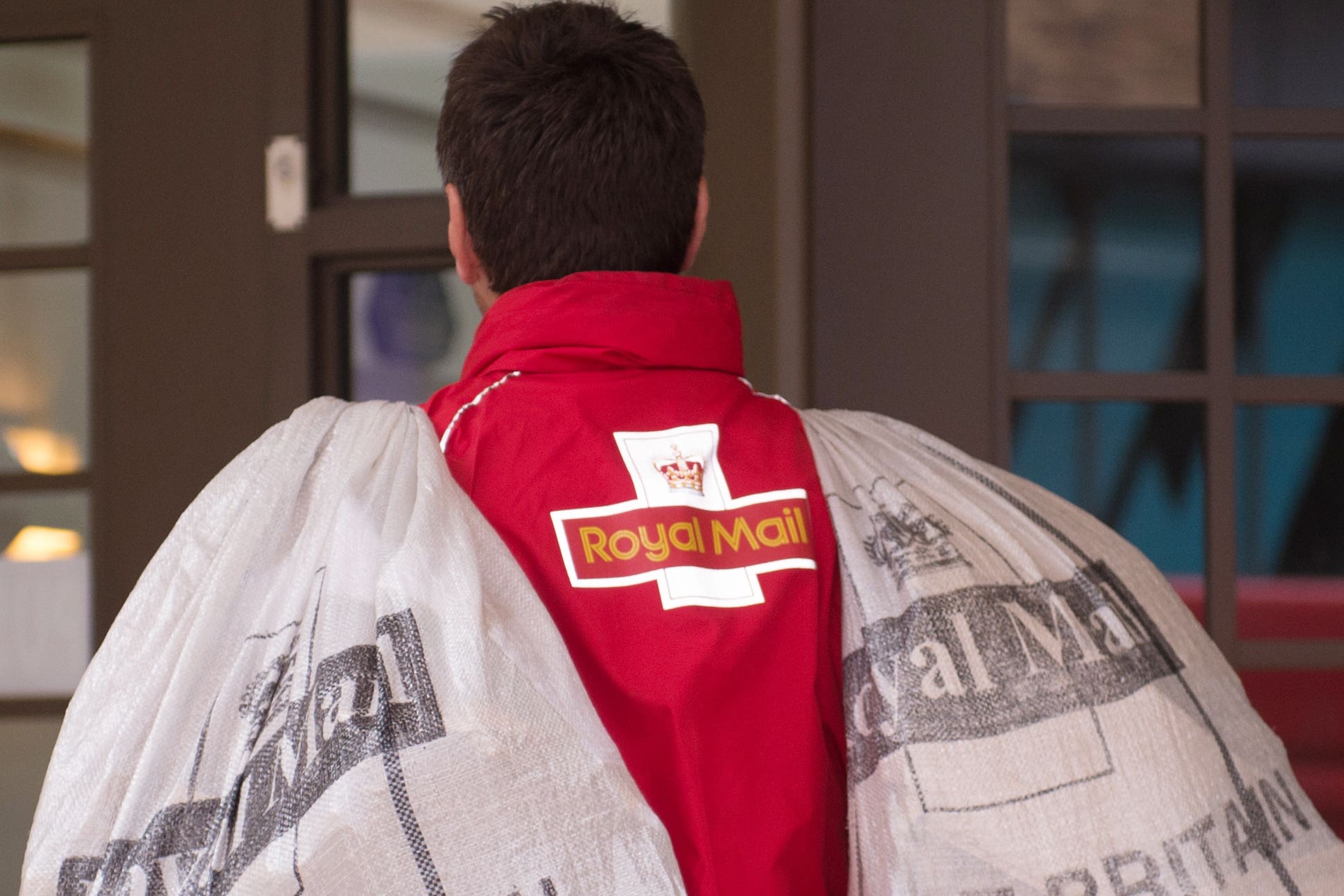Plans to cut Royal Mail deliveries ‘could worsen patient safety risks’
The chief executives of Healthwatch England, National Voices, The Patients Association and NHS Providers have ‘raised direct concerns’.

Plans to cut the number of Royal Mail deliveries could worsen patient safety risks, the leaders of organisations including NHS Providers and Healthwatch England have said.
Royal Mail has proposed that first class mail be kept as a six-days-a-week service but that second class letter deliveries be cut dramatically.
The company is proposing that all non-first class letter deliveries – including second class and bulk business mail, such as bills and statements – are cut to every other weekday.
We have made it clear that if the plans go ahead, a solution must be found to prioritise the huge numbers of letters sent from NHS teams, otherwise more people will miss time-critical appointments, appointment changes or vital test results
The chief executives of Healthwatch England, National Voices, The Patients Association and NHS Providers – the main national organisations that advocate for the needs of NHS patients, as well as the membership body of all NHS trusts in England – have “raised direct concerns with Royal Mail that this worrying plan may worsen patient safety risks”.
The plans are part of Royal Mail’s submission to regulator Ofcom, which is consulting on reforms of the universal postal service.
In a joint letter published in The Daily Telegraph, the chief executives said: “Provisional Healthwatch data suggest that more than two million people may have missed medical appointments in 2022-23 due to late delivery of letters, and this will only deteriorate under the proposed new plans.
“We have made it clear that if the plans go ahead, a solution must be found to prioritise the huge numbers of letters sent from NHS teams, otherwise more people will miss time-critical appointments, appointment changes or vital test results.
“Along with patient safety risks, this will impact NHS teams as well, with previous estimates on the cost of missed hospital appointments sitting at more than £1 billion every year – on top of the disruption for staff and other patients.”
The letter is signed by chief executives Louise Ansari of Healthwatch England, Jacob Lant of National Voices, Rachel Power of The Patients Association and Sir Julian Hartley of NHS Providers.
It comes after readers of the newspaper complained of potentially missed appointments, claiming that “Royal Mail holds the public in contempt” and is “risking our health”.
One claimed the company “provides a poor service that now costs us even more to use – I hope that there will be an improvement” while another described Royal Mail as “a disappointment”.
When letter volumes have declined from 20 billion in 2004/5 to just seven billion today, it is vital that the universal service is reformed so that we can protect the one-price-goes-anywhere service that many organisations, including the NHS, rely on
A Royal Mail spokesman said: “We know how important receiving NHS letters is to many people.
“When letter volumes have declined from 20 billion in 2004/5 to just seven billion today, it is vital that the universal service is reformed so that we can protect the one-price-goes-anywhere service that many organisations, including the NHS, rely on.”
The spokesman added: “The NHS is made up of hundreds of different trusts and thousands of GPs as well as other services, each with varied requirements.
“We will continue to offer a choice of service levels and prices to suit their needs.
“We are working with a range of NHS bodies to explore options for time-sensitive medical letters as part of our proposals, such as distinctively marked envelopes, use of barcodes and adapting our existing hybrid product (used by a third of GPs) as part of our proposals.”
He said the company has spent “significant time” to understand what is needed from reform, including talking to more than 3,500 customers, businesses, a range of organisations and different parts of the NHS, including NHS trusts and NHS representative organisations including Healthwatch England.
A spokesman for the regulator has said all the feedback will be carefully considered before an update is given in the summer.
Under its universal service obligation (USO), Royal Mail must deliver letters six days a week to all 32 million addresses in the UK for the price of a stamp.
Royal Mail has long been urging the Government and Ofcom to review its obligations, arguing that it is no longer workable or cost effective, given the decline in addressed letter post.
In a long-awaited report in January, Ofcom revealed options for an overhaul of the universal postal service that could see Royal Mail’s letter delivery service slashed from six days to five, or even three, a week.
Another option mooted was to extend letter delivery times, with a more expensive next-day delivery service available when required.
The proposals sparked an outcry, with ministers quick to dismiss any suggestion that the Government would sanction the scrapping of Saturday deliveries.
The six-days-a-week service is part of the universal service requirement stipulated by law under the Postal Services Act 2011.
Royal Mail also said in its submission that it would change all standard bulk mail – such as bills and statements – to a second class service, meaning they arrive within three weekdays instead of two.
It added that it would like to add new reliability targets, as well as “revised, realistic” speed goals, and add tracking to universal service parcels.